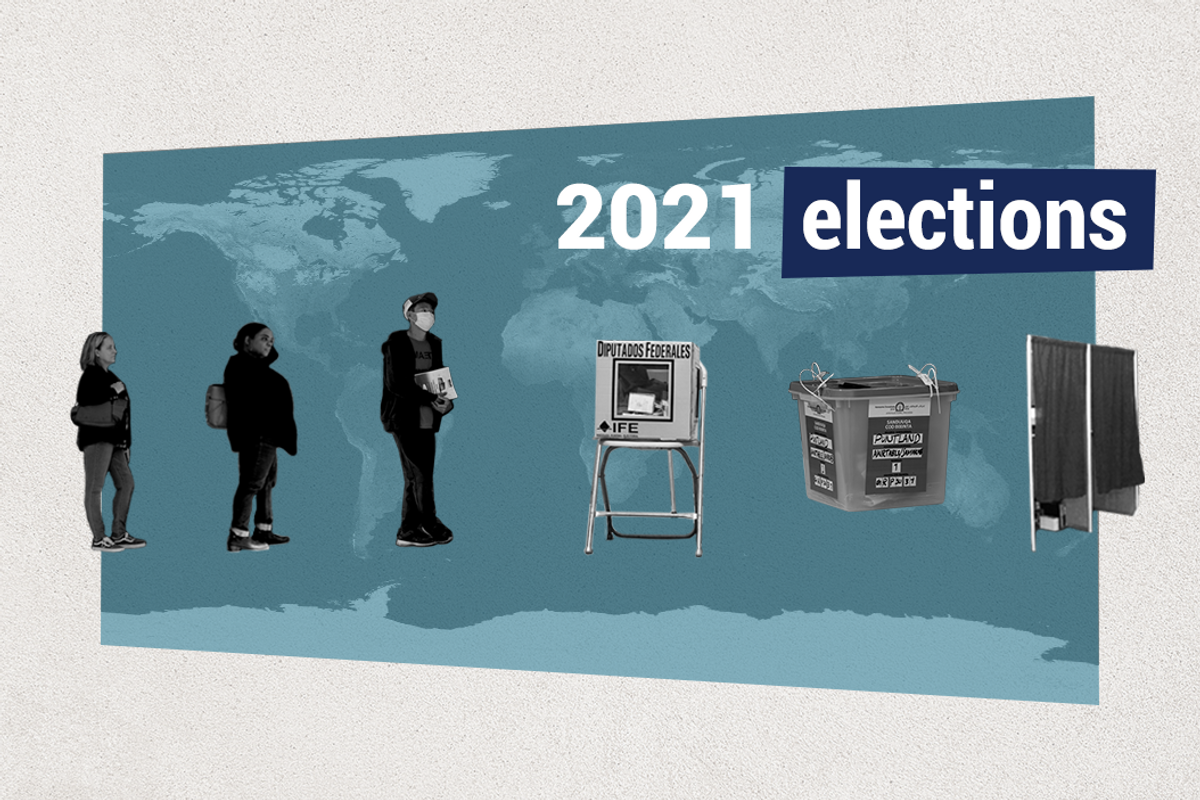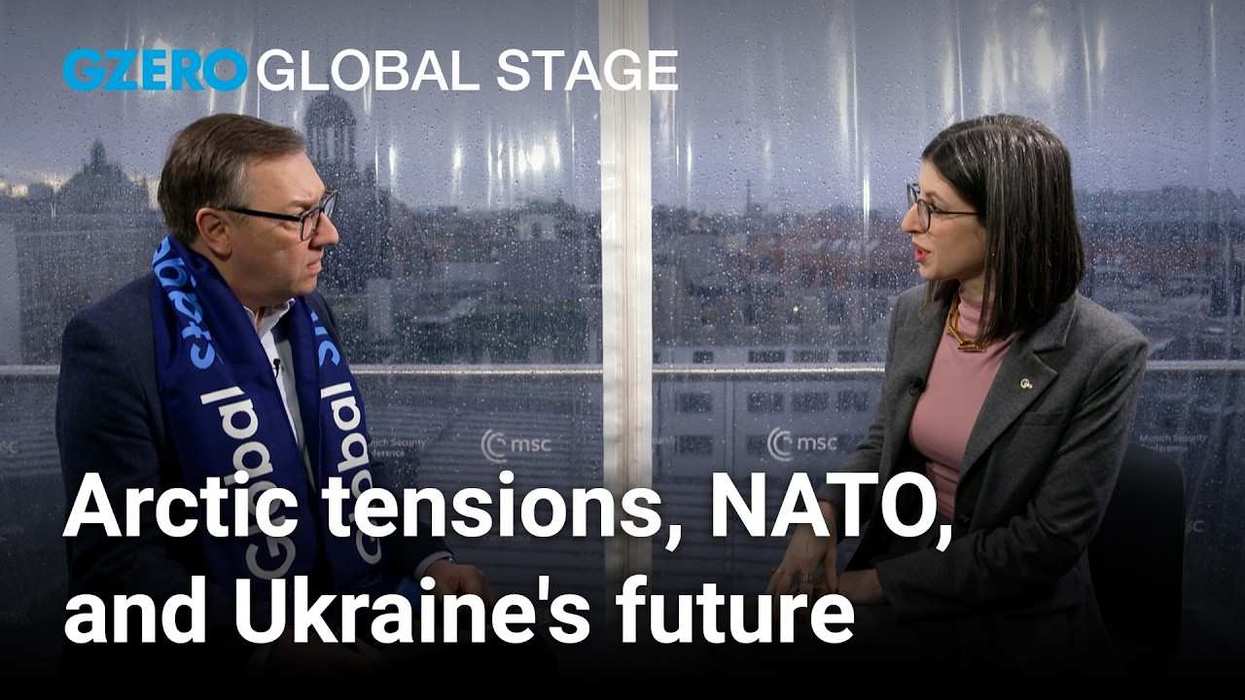This year, voters in dozens of countries will choose new leaders. With the human and economic toll of the COVID-19 pandemic as a backdrop, how will the worst global crisis in more than a hundred years play out at the ballot box? Here are a few key elections to keep an eye on in 2021.
Germany: A world without Merkel
This fall, for the first time in 16 years, Germans will elect a government that will not be led by Angela Merkel. The German Chancellor is stepping down, and the race to replace her is heating up. Her center-right CDU party will select a new head to carry the flag into the election, but non-centrist parties such as the far-right AfD or the leftwing Greens will try to continue to erode the dominance of centrist parties. Whoever wins, Merkel is a tough act to follow. During her tenure, she steered Germany (and Europe) through the financial crisis, the refugee crisis, and the pandemic. Her successor as leader of Europe's largest economy will take the helm right as Europe tries to dig its way out of a pandemic-imposed slowdown, adjust to post-Brexit life, rebuild (some aspects of) relations with the US, and navigate an increasingly challenging relationship with China. Viel Glück!
Iran: Hardliners wait in the wings
Hardliners hostile to rapprochement with the West did well in last year's parliamentary elections, and are the front-runners ahead of a presidential vote in June. That could complicate any push to revive the 2015 Iran nuclear deal — which Tehran has been violating since the US withdrew from the pact in 2018. Current president Hassan Rouhani supported the original deal and wants to explore reviving it — not least because sanctions relief would help millions of struggling Iranians. US president-elect Joe Biden does too, but will have to convince skeptics on Capitol Hill that any new pact hems in Iran's regional trouble-making. In the end, Iran's supreme leader will decide what Tehran can agree to or not, but the presidential election — and the campaigning around it — will be a crucial bellwether for Iran's domestic and foreign policy.
Uganda: Is it time for Wine?
Next week's presidential election pits current leader Yoweri Museveni, in power since 1986, against opposition leader Bobi Wine, a former pop star turned politician who is beloved by young and mostly urban Ugandans. The campaign period has been, in Wine's words, "a war and a battlefield" — authorities have arrested and assaulted him and shot protesters who support him. Museveni is popular in the countryside, where he is lauded for having brought stability, growth, and subsidies. Fearing electoral fraud, Wine has launched an app that citizens can use to "monitor" the ballot count. The possibility of post-election violence is high.
Russia: Will the "swamp" creatures return?
In November, Russians will vote in tightly controlled legislative elections that are almost certain to give victory to the ruling United Russia party. But Russia's been hit hard by the coronavirus crisis, and Vladimir Putin's approval ratings are near historical lows (for him, at least). The last time Russia held an election while Putin's popularity was flagging was in 2011. Grievances over corruption and Putin's increasingly out-of-touch rule then brought hundreds of thousands into the streets in what became known as the Bolotnaya Ploschad (literally "swamp square") protests. Alexei Navalny, a major star of those protests, is still in Germany right now after surviving an assassination attempt (almost certainly) carried out by Putin's security services. Will he try to return to the motherland just in time to stir up the streets?
Scotland: Edinburgh calling
After the UK voted in 2016 to leave the EU, the question of Scottish independence has become hot again. The last time Scotland held a referendum on independence from the UK, in 2014, 55% voted no. But pro-independence Scots, including current Scottish leader Nicola Sturgeon of the Scottish National Party, want another referendum in the wake of Brexit, which most Scots opposed. Meanwhile, UK Prime Minister Boris Johnson — who would officially have to greenlight any independence vote — says it's too soon to hold another one. If Sturgeon's SNP rings up a resounding victory in Scotland's legislative election this summer, it could set up a serious clash between Edinburgh and London.
Triple play in Latin America
A number of Latin American nations hold elections this year, but three stand out. Over the past year, the pandemic has clobbered Peru's once-stellar economy and created political chaos — last fall, the country had three presidents in seven days. A presidential vote is scheduled for April, and former footballer George Forsyth is a leading contender among Peruvians sick of the same old faces. Keep a close eye also on Chile, which holds its first presidential vote since mass protests over social justice and inequality in 2019 and 2020 forced a rewrite of the Pinochet-era constitution. Lastly, Mexico's July mid-term legislative election will be a referendum — perhaps literally — on left-populist president Andrés Manuel López Obrador, who has remained popular despite mishandling the coronavirus pandemic. López Obrador has proposed including a recall vote on his own presidency on the same ballot.
What's another election that you think is critical to watch this year? Let us know and maybe we'll do another one of these later in 2021.


















